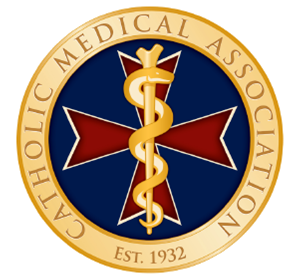March 24, 2023
Catholic Medical Association (USA) Applauds AMA Recognition of Hormonal Contraceptives Link to Risk of Breast Cancer
Philadelphia, PA- March 24, 2023- Catholic Medical Association today acknowledges the American Medical Association (AMA) for recognizing elevated risks for breast cancer caused by hormonal contraceptives.
AMA shared the findings of a study which indicate that certain types of hormonal birth controls are associated with the increased risk:
“…the relative risk of being diagnosed with breast cancer was 20% to 30% higher among women who use or recently used birth control pills with a two-hormone combination, progestogen-only pills or hormonal IUDs compared to women who did not.”
“We applaud the AMA for sharing the truth with its members- and with women- to make clear and transparent the true risks of these drugs,” said CMA President, Craig Treptow, M.D.
“It is long overdue for the AMA to acknowledge what the WHO stated as early as 2005[1] that hormonal contraceptives increase a woman’s risk of breast cancer,” said Kathleen Raviele, M.D., an OBGYN, CMA board member and past president.
Dr. Raviele, who also said these drugs increase a woman’s risk for cervical cancer, stressed that women deserve to know all of the risks involved in taking them.
CMA and its expert members have long warned of these risks and other ethical issues with hormonal contraceptives.
In a 2016 statement, CMA said “Contraception has many harmful physical effects. Oral contraceptives are associated with an increased risk of breast cancer, including one of the deadliest and most difficult to treat subtypes, premenopausal Triple Negative Breast Cancer. Hormonal contraceptives (HCs) of various types are also associated with increased risk of venous thromboembolism, myocardial infarction, ischemic stroke, depression, and reduced sexual functioning and interest, among other serious medical issues…”
“This information is shocking but not new and the increased risk for breast cancer in women who are taking the pill, and for several years after, has been known for a long time. Attempts to make it more widely known have been thwarted for almost 25 years and millions of women have been affected, unfortunately,” said Lester Ruppersberger, D.O., OBGYN and past president of CMA.
When women widely learned in 2002 that combined hormone replacement therapy increased their risk of breast cancer by 26 percent, about half immediately stopped taking them. This resulted in significantly lowering the incidence of postmenopausal breast cancer that has remained to this day. There are 12 million premenopausal women taking hormonal contraception in the U.S. today,” said Angela Lanfranchi, M.D,, CMA State Director for New Jersey and President of the Breast Cancer Prevention Institute.










